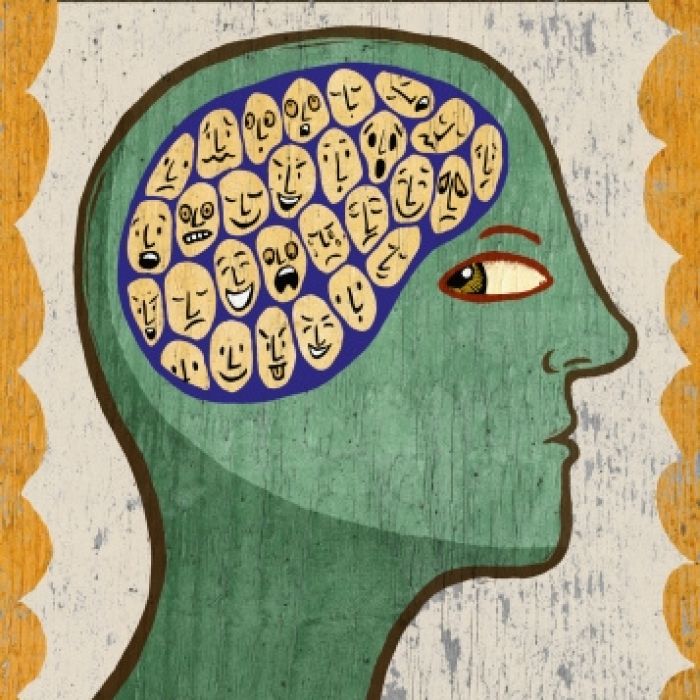What Both the Media and Mental Health Professionals Get Wrong About Hearing Voices

By:
For a long time, conventional wisdom has held that those who hear voices in their head are crazy. And while that's how things are commonly depicted in media, and even treated by mental health professionals, there's a big problem: it's not true.
 Big Stock - bigstockphoto.com
Big Stock - bigstockphoto.com
This belief is actually still upheld frequently in Western medicine, research has found that if an individual goes to a psychiatrist complaining of hearing voices, there is an 80 percent chance they will get diagnosed with schizophrenia. This association, coupled with Hollywood’s depictions of voices only being heard by characters with schizophrenia, has led to the stigmatization and misinformation surrounding those who actually do experience auditory hallucinations.
In reality, the prevalence of those who hear voices ranges between 3.1 percent and 19.5 percent of the population, according to a study that compared the results of 17 surveys spanning across nine countries.
Further research by Professor Marius Romme and Dr. Sandra Escher, founders of Intervoice & The Hearing Voices Movement, concluded that only 16 percent of people who reported hearing voices were diagnosed with schizophrenia. That leaves a large percentage of people who still experience auditory hallucinations who don’t have schizophrenia. Some of those people will have some other psychiatric disorder, like a dissociative disorder or affective psychosis of some kind, but the rest of that population is made up of completely healthy individuals.
In other words, hearing voices is not as rare or confined of an experience as many would believe.
So what is it like to hear voices?
It’s different for everyone. Some have reported hearing just one voice, some have reported hearing hundreds of voices. Voices can be male, female, without gender, childlike, adult, human, or non-human. The voices can come from outside the individual’s head or come from a source within their psyche that does not originate from their own thoughts. What the voices say also varies from individual to individual. They can be negative, positive, or neutral. They can whisper or shout. They can make commentary, ask questions, start conversations, or even make commands.
 ABC - net.au
ABC - net.au
My voice was able to read my thoughts and memory and therefore knew me inside out. It knew exactly how to manipulate me and seemed to enjoy doing this. It sometimes used memories in my head that stirred emotions so it could get a grip on me. I learned that If I stayed strong and centred I stayed in charge. — Stuart C., Hearing Voices Network
The exact reason for why some people hear voices is unclear, but it is clear that trauma is a major contributing factor. Between 70 and 90 percent of people who hear voices do so following traumatic events.
This is true for those with an underlying psychiatric disorder and those with no underlying psychiatric disorder. The traumatic experiences reported include: sexual abuse, physical abuse, long periods of neglect, and even the death of a parent. This connection between trauma and hearing voices has led to the belief that these hallucinations could be a coping mechanism or a defense mechanism of sorts.
‘When “The Three” (a group of male voices that have talked about me since my late teens) discuss how I’m not safe here and that someone is waiting outside the room to abduct me, I take it as a sign that part of me isn’t feeling safe in this environment. This isn’t unfounded – being a survivor of trauma I have many historical reasons to feel unsafe. This simple recognition means I no longer need to panic, scream at The Three or shut myself away. I merely speak to myself and say ‘I know I haven’t been safe before, but here and now there is nothing to be afraid of’. — Rachel W., Hearing Voices Network
Treatment for auditory hallucinations typically include a combination of medication and psychotherapy, but there is no guarantee that the voices can be silenced completely or indefinitely. Many people learn to cope with their voices on an individual basis, accepting the fact that they are a natural experience that does not need to be feared.
As the U.K. based Mental Health Foundation notes, fight the stigmas that are so strongly reinforced about voice hearers in media is important, too. "Talk to other voice hearers," they note. "This gives you the opportunity to share experiences and to learn from one another.
